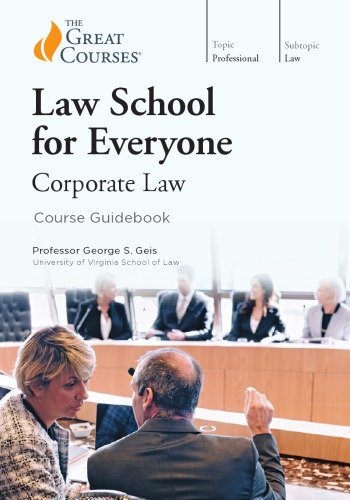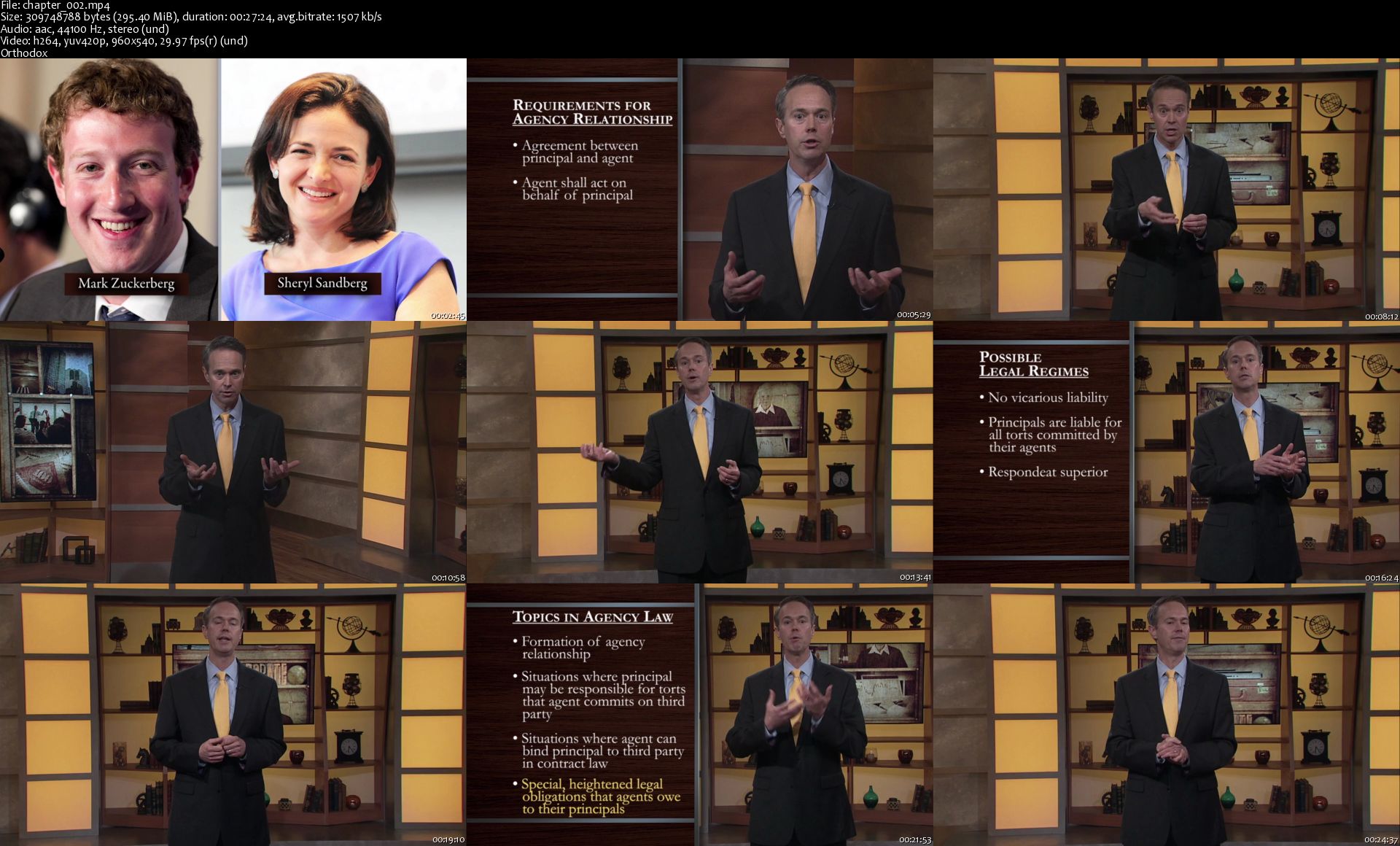The primary goal of corporate law is to help actors obtain all the benefits of centralized business activity while minimizing the conflicts and problems that can arise from irresponsible corporate leadership. This makes American corporate law a profound influence not just on the nation's large and small corporations-but on ourselves.
Award-winning law professor George S. Geis of the University of Virginia School of Law explores the key dimensions of corporate law in the 12 lectures of Law School for Everyone: Corporate Law. Recreating a traditional law school course in corporate law, Professor Geis guides you through the foundations of corporate law, the history of corporations, the problems that can plague corporations (including insider trading and bribery), and more. Using both iconic court cases and case studies involving today's top corporations, this course is a fascinating look at how corporate law works, where it works well, and where it may still fall short of its goals.
Unlike contract law or property law, which evolve over decades, corporate law is a field of law that's constantly changing in response to current events piling up in today's headlines. Many of the business scandals you hear about on the news often lead to new legal arguments over the limits of corporate activity and the optimal balance of corporate power. It's a constant surge of reaction and adaptation that makes corporate law one of the most exciting parts of a typical law school experience. Consider:
Who is empowered to make and execute corporate decisions?
Is it stockholders who have the final say, or a board of directors?
What happens during a corporate merger-or hostile takeover?
What legal rules are in place to ensure corporations behave ethically?
These and other questions are at the heart of corporate law. With so much wealth and power, these often-immense entities can shape the world we live in and it is important for every consumer to understand the extent of their influence through the laws that help govern them.
Explore Fundamental Concepts of Corporate Law
When you hear the term "corporate law," you're likely to think of a boardroom of people in suits with binders and dry documents. In truth, Professor Geis suggests you think of corporate law as more like the Wild West.
"Life in the corporate world is a fight for money, power, and survival," he says. "And getting everyone to play by the rules is no easy task."
In Law School for Everyone: Corporate Law, Professor Geis offers a detailed map of this landscape of legal concepts and innovations. It's the perfect introduction to what he describes as "society's means of facilitating the good that corporations do, so that different players can focus their energy and resources on productive efforts."
In clear, accessible language, these lectures introduce you to the inner workings of corporate law, from the fundamental structure of a typical corporation to the high-stakes drama of battles over corporate control. You will look at:
Types of Corporations: When a group of entrepreneurs gets together, what type of organization should they choose? Many larger firms want to trade their stock on the public market, and it's usually much easier to trade the securities of a corporation. With a limited liability company (LLC), however, entrepreneurs get the best of both worlds-limited liability and single-level taxation.
Corporate Duties: To gain protection in the event of a bad business decision, corporate boards of directors need to meet fiduciary obligations. Among these obligations in corporate law are the duty of care (which requires corporate leaders to make careful, thoughtful decisions) and the duty of loyalty (which says agents can't undermine the interests of their principals).
Fights for Corporate Control: Control battles spring up at firms of all sizes. But they can be especially contentious in smaller firms where the shareholders sometimes have personal relationships with one another. In a proxy fight, for example, all shareholders who agree with the vision of a new slate of directors can vote for that new slate to take over the board and start running the company.
Merging Two Corporations: Why would two corporations choose to form a new one? There are many strategic reasons, one of the most prominent being business synergies. Think 1 + 1 = 3. The firms hope to get more out of the combination than either firm could get on its own. Merger synergies are sometimes divided between cost synergies and revenue synergies.
Learn from Landmark Court Cases
Throughout Law School for Everyone: Corporate Law, you'll plunge into fascinating, landmark court cases that have shaped the way corporate lawyers think about their field, such as:
Dodge v. Ford Motor Company (1919): This court decision is still studied because it addresses fundamental questions about how corporations should behave;
SEC v. Texas Gulf Sulphur (1968): This foundational (and sweeping) decision on insider trading helped set out, through noble rhetoric, a level playing field for investors;
Smith v. Van Gorkom (1985): This Delaware Supreme Court decision turned duty of care from something no one worried about into the hottest issue in corporate law; and
Basic v. Levinson (1988): This U.S. Supreme Court decision embraced the theory of fraud on the market and paved the way for class-action lawsuits in 10b-5 fraud claims.
In these and other cases, Professor Geis transforms "legalese" into easily understandable stories that, woven together, create a grand narrative of the evolution of corporate law from its beginnings right up to the challenges of the present day.
"How corporate law reacts and adapts has a powerful impact on our society," Professor Geis says. And Law School for Everyone: Corporate Law encourages you to not only understand how corporate law works, but to also play your own role in shaping it-as a voter, as a shareholder, as a corporate leader, or perhaps even as a lawyer.

 Our Live Cams
Our Live Cams





 Reply With Quote
Reply With Quote